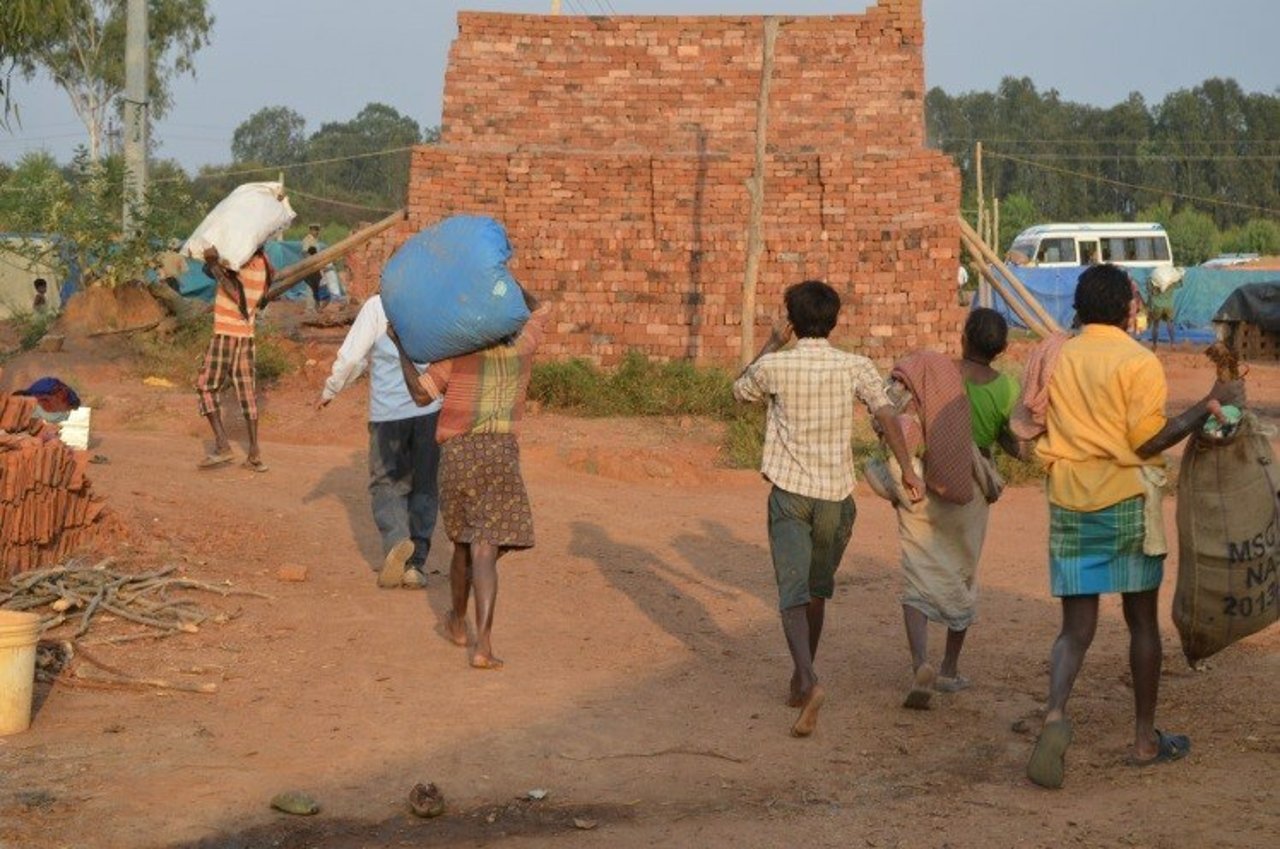Bangalore Brick Kiln Owners are Beginning to Feel the Heat
Summary:

It was a typical day’s work for Chandan as he drove customers around his village in the state of Odisha in his cycle rickshaw, dropping them at their destination. Typical--until one of Chandan’s customers asked if he and his family would be interested in working in a different place, at a brick kiln.
Chandan declined the offer, but the customer returned with the owner of the brick kiln. This time, the men told Chandan they would pay him Rs 1,500 per week and give days off to rest. For a father earning just enough to get by, this opportunity seemed t0o good to pass up.
Four months ago, Chandan and 17 relatives from five families boarded a train to Bangalore, where this brick kiln was located. Eight more labourers joined them 10 weeks later.
Trapped in Forced Labour Slavery
Once they began work in Bangalore, each family received only Rs 300 per week—even though all members of the family were working, including eight child labourers. With only one-hour breaks for meals, they worked seven days a week from 3am until 7pm.
The families had been trapped into forced labour slavery (called bonded labour in India). They had been offered an up-front loan and the promise of good wages that would help them pay down that advance, but instead the owner tacked on interest and withheld proper wages. They had no idea where to go for help or how to get out.
"I did not want to come to Bangalore, we were cheated into coming here. I am not given enough wages to buy adequate food for my family; we usually eat only rice, with chutney or only salt. When I was in Odisha I earned enough to even buy snacks for my children. Now they cry asking me why I don’t buy them snacks anymore. We are suffering here; we just want to go home.”
-Chandan, survivor of slavery
The Life of Slavery
Chandan, his wife, and children all sustained minor injuries while mixing and making bricks, but were never allowed to go to the hospital. The slaves recounted instances where their children were beaten with a pipe and verbally abused if they were caught playing when their job was to pour mud in brick molds and rotate them to dry.
When one of the slaves told the owner that they would pay back the advance payment and go back to Odisha, he threatened dire consequences for his wife and children. The owner also said he would have to pay back Rs 70,000 now, instead of Rs 25,000, a 180% increase, before he could leave.
On March 2, IJM entered the brick kiln with the Anti-Human Trafficking Unit (AHTU), along with the District Administration and the Karnataka police.
The owner was beating the women forced labourers with his slippers. The slaves came running toward law enforcement; the men were furious and the women and children were weeping aloud.
"Their pain and just the loss of dignity and shame was so apparent. The moment the government asked them to collect their belongings they ran, grabbed their belongings and ran to the vehicle parked to take them away to safety.”
-IJM staff member on the scene
The Fight for Freedom
As the rescue team arrived at the police station with the thirty men, women and children rescued from the brick kiln, a group of about 50 men was waiting. The mob surrounded the IJM vehicles. Undeterred, the officials led the formal interview process with IJM remaining on site. As night wore on, the mob began to disperse.
The authorities issued 26 release certificates to the men, women and children who had been forced to work in the brick kiln. An FIR including offences under IPC 370 (Human Trafficking) and the Bonded Labour Abolition Act, 1976 was filed at the police station. One of the accused has been arrested and remanded to judicial custody, while two other suspects are absconding.
"The word is out that bonded labour owners are going to jail, so attempts to obstruct and oppose rescue operations are escalating,” said IJM Director Peter Williams. "This case shows that those fighting for good, for freedom—like our IJM team and the AHTU officers—will not back down. The only option for these perpetrators of violence is to cease and desist.”
*a pseudonym